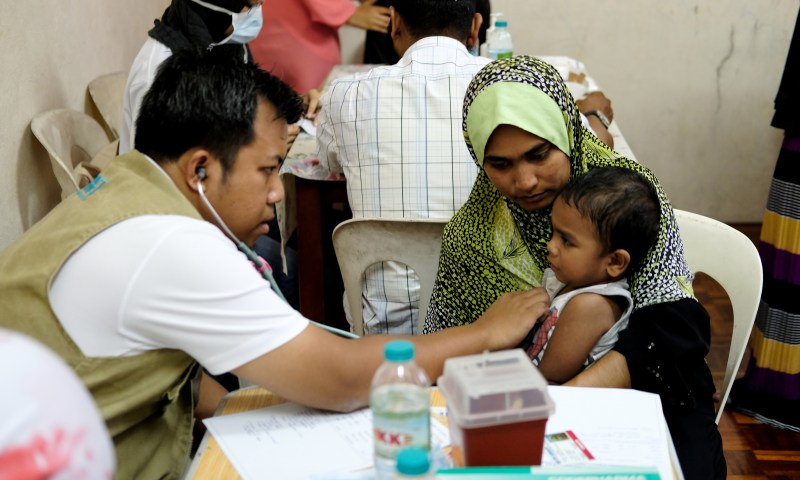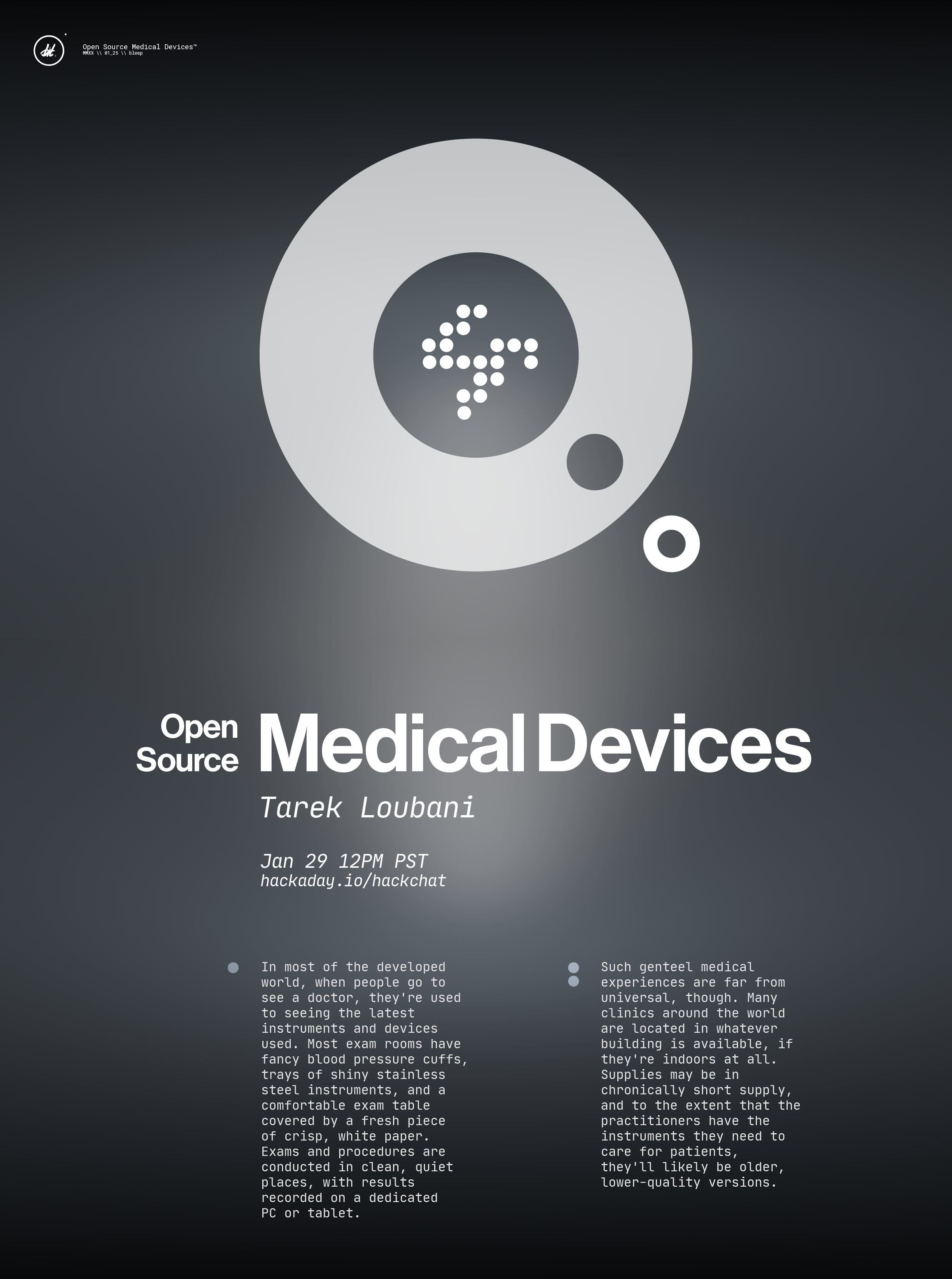Join us on Wednesday, January 29 at noon Pacific for the Open-Source Medical Devices Hack Chat with Tarek Loubani!
In most of the developed world, when people go to see a doctor, they’re used to seeing the latest instruments and devices used. Most exam rooms have fancy blood pressure cuffs, trays of shiny stainless steel instruments, and a comfortable exam table covered by a fresh piece of crisp, white paper. Exams and procedures are conducted in clean, quiet places, with results recorded on a dedicated PC or tablet.
Such genteel medical experiences are far from universal, though. Many clinics around the world are located in whatever building is available, if they’re indoors at all. Supplies may be in chronically short supply, and to the extent that the practitioners have the instruments they need to care for patients, they’ll likely be older, lower-quality versions.
Tarek Loubani is well-versed in the practice of medicine under conditions like these, as well as far worse situations. As an emergency physician and researcher in Canada, he’s accustomed to well-appointed facilities and ample supplies. But he’s also involved in humanitarian relief, taking his medical skills and limited supplies to places like Gaza. He has seen first-hand how lack of the correct tools can lead to poor outcomes for patients, and chose to fight back by designing a range of medical devices and instruments that can be 3D-printed. His Glia Project has free plans for a high-quality stethoscope that can be built for a couple of dollars, otoscopes and pulse oximeters, and a range of surgical tooling to make the practice of medicine under austere conditions a little easier.
Join us as we talk to Dr. Loubani about his open-source medical efforts. We’ll chat about how he got interested in building devices, how he decides what’s worth building, and what’s in store for the future of the Glia Project specifically and open-source medicine in general.
 Our Hack Chats are live community events in the Hackaday.io Hack Chat group messaging. This week we’ll be sitting down on Wednesday, January 29 at 12:00 PM Pacific time. If time zones have got you down, we have a handy time zone converter.
Our Hack Chats are live community events in the Hackaday.io Hack Chat group messaging. This week we’ll be sitting down on Wednesday, January 29 at 12:00 PM Pacific time. If time zones have got you down, we have a handy time zone converter.
Click that speech bubble to the right, and you’ll be taken directly to the Hack Chat group on Hackaday.io. You don’t have to wait until Wednesday; join whenever you want and you can see what the community is talking about.

















bill gates won’t be happy about this…
why are the stethoscope .stl files so hard to find on github? I thought this was open source? I’m a MD who would like to print off the pieces for my next medical education mission.
The fact of the matter is that this guy is a true hero on many levels, but can we please not get bogged down in the rights and wrongs of the Israel/Palestine conflict? The fact of the matter is that there is a blockade and a war going on and Tarek is working to bring medical care to the hardest hit. Let’s focus on that, not on who’s fault whatever is.
sure, but if the project is open source, then where are the .stl files?
https://github.com/GliaX/Stethoscope/tree/master/source_files/stl
But STL isn’t a source. It’s a binary.
https://github.com/GliaX/Stethoscope/tree/master/source_files/scad
Are the source files.